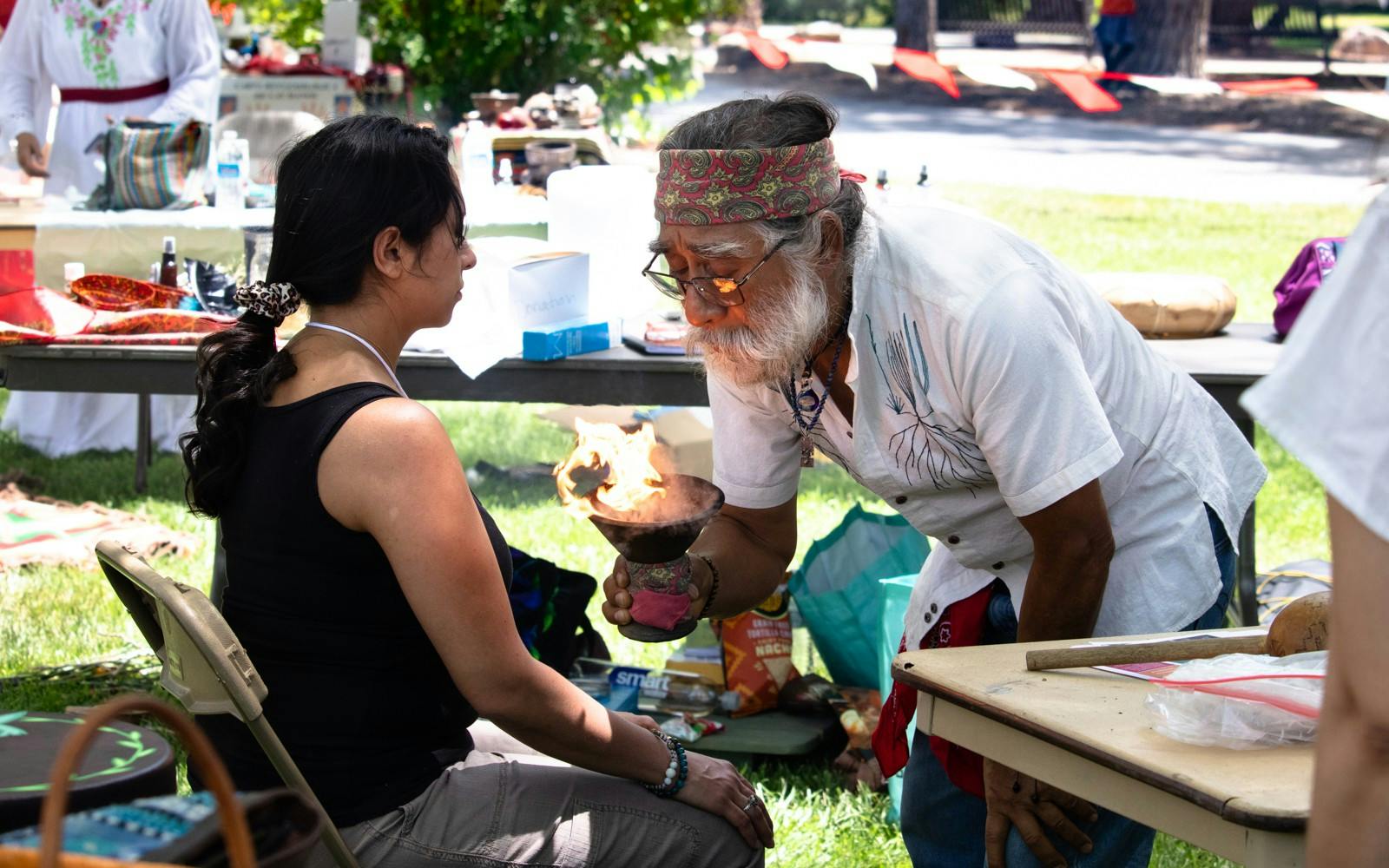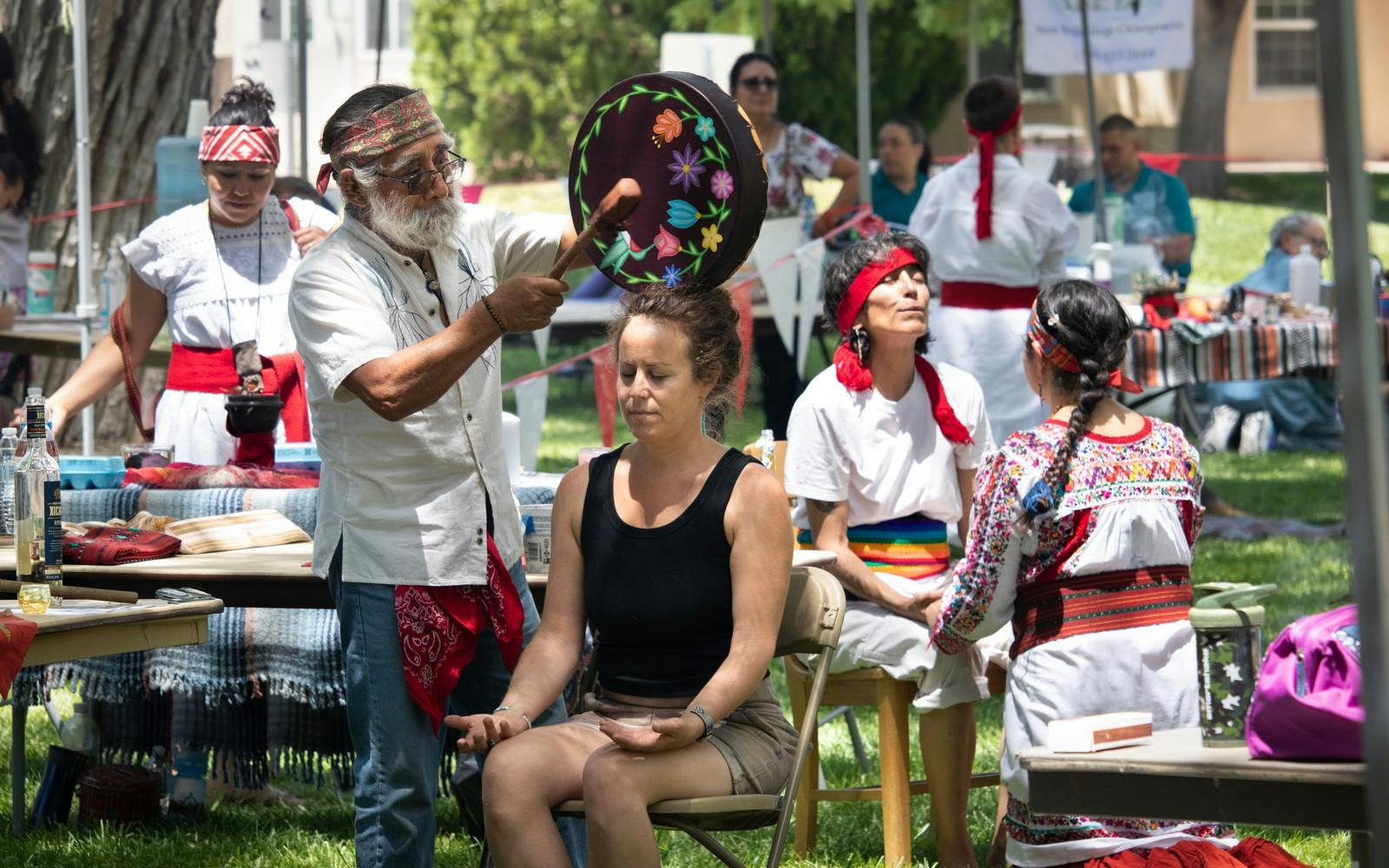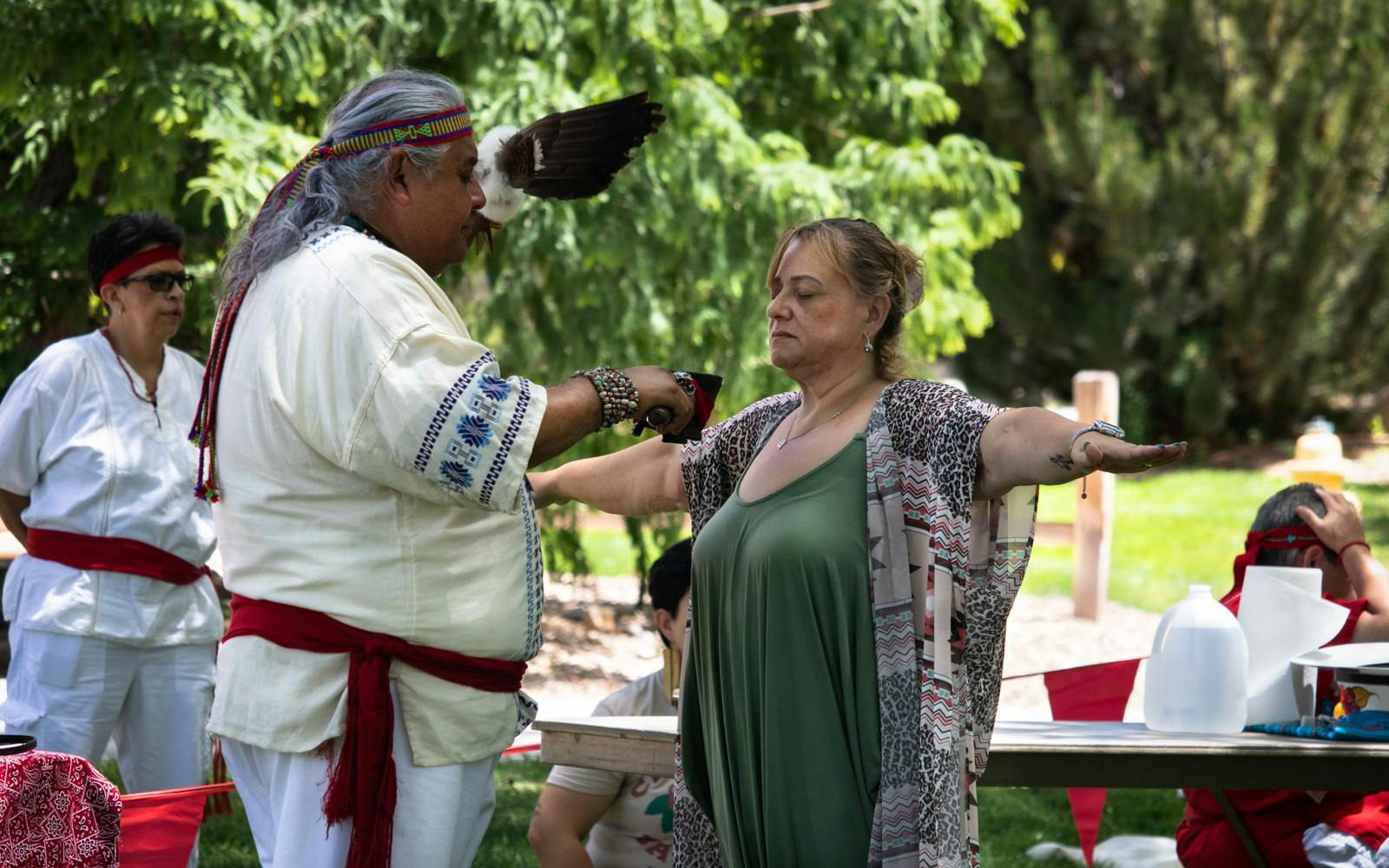During the summer, the University of New Mexico offers a two week in-person class called “Curanderismo: The Art of Mexican Folk Healing” to allow students to connect more closely with cultural and spiritual healing.
The class takes a holistic approach to healing, Eliseo Torres said — the professor of the course. The class has many guest speakers from all over, including Mexico and Peru. Some of those guests are curanderas who specialize in the traditional healing methods of Curanderismo.
One such curandera is Tonita Gonzales who has worked with the class for many years and sees it as an opportunity to give students a perspective on medicine and healing in other cultures outside western medicine.
“When we teach in the summer, we're not teaching people how to be a curandera,” Gonzales said. “What we're doing is we're teaching people how to appreciate the wisdom of other traditional practices.”
The class also takes a field trip to the Curandera Garden located in Albuquerque’s Biopark Botanic Garden where curanderas and herbalists examine the herbs and what they are used for. The class also facilitates conversations about handling grief.
“During COVID, people were dying; they didn't know how to grieve,” Torres said. “So we teach them how to grieve the traditional way. And we have several speakers talking about grief from dying and death, (including) doulas that deal with death.”
Gonzales said she hopes that this class will leave students feeling empowered to advocate for their own health in ways they feel comfortable.
“I hope at the end of the day that (students are) empowered to advocate for their own health ... that they use their voice as to what feels good, what doesn't and to ask questions, because then when we don't just have one way of looking at things, we learn many,” Gonzales said.
Jasmine Poblano, a master's student at UNM with The Chicana and Chicano Studies Department, took the class virtually in the spring and is now participating this summer as a videographer.
Poblano remembers her abuelita practicing similar healing methods and said that she enjoyed the class and how it helped her connect with her cultural roots.
“It's nice to go back to the root of where that comes from and acknowledge my ancestors and acknowledge the history behind all of this,” Poblano said. “And it's just really guided me back to where my people come from.”
While the class is based in traditional Mexican healing, Torres said students from all cultural backgrounds can take it to find connections to their own cultures' healing practices.
Get content from The Daily Lobo delivered to your inbox
“And if nothing else, (the class) is for information purposes. Students are learning about this topic and then they know why their ancestors did what they did,” Torres said.
The class begins and ends with a traditional ceremony where people from the community come to participate. The opening ceremony is to give thanks to the earth for all that she has given, and to apologize for not caring for her as we should, Gonzales said.
“So for us, (the ceremony is) about asking permission from the four directions: the heavens, the earth, our heart and our spirit. And so we ask,” Gonzales said. “And everybody that's there – we ask permission of all of their ancestors, of all of their elders – to be present and to give us strength and give us permission to learn their culture, to learn who they are. And for their ancestors to be present with us so that we can learn from each other.”
The closing ceremony serves as a time to give gratitude for the shared wisdom and medicine, Gonzales said. Gratitude and connecting to the earth are central themes, and are something Pablano said she tries to incorporate into her daily life.
“The curanderos treat plants like people, or as mirrors of themselves,” Poblano said. “So they'll actually take time to talk to the plants before they pick them for different medicines or rituals. They ask permission from the plants and they'll pray over the plants, and everything is very intentional with the point of view that everything on this earth is just as equally as important as you are.”
Elizabeth Secor is a freelance reporter for the Daily Lobo. She can be contacted at news@dailylobo.com or on Twitter @esecor2003.
Elizabeth Secor is a freelance reporter for the Daily Lobo. She can be contacted on Twitter @esecor2003








